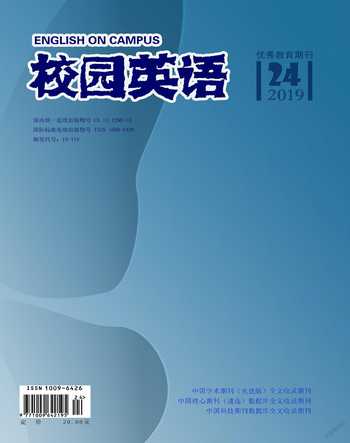On Chinese Classical Drama Translation from the Perspective of Skopos theory
黄志芳 张家骥
【Abstract】People have neglected the Chinese classical drama translation for a long time. There are very few related research results about it. Thus, the author intends to take the skopos theory as the theoretical basis to make the comparative analysis of three English versions of The Peony Pavilion translated by Wang Rongpei, Zhang Guangqian and Cyril Birch respectively.
【Key words】Chinese classical drama translation; the skopos theory; The Peony Pavilion; translation strategies
【作者简介】黄志芳,张家骥,东华理工大学。
Chinese classical drama translation already has a history of 270 years. As early as 1736, Ji Junxiang’s The Orphan of Chao was first translated into English. Now, many translated works have aroused strong repercussions at home and abroad. This essay intends to take the skopos theory as the theoretical basis of the research and choose three English versions of The Peony Pavilion as materials to make the comparative study from the aspects of substitute words, numbers and appellation. These three English versions were separately translated by Cyril Birch, Zhang Guangqian and Wang Rongpei.
1. Numbers
The use of numbers is very unique in Chinese traditional culture. Usually, the numbers are used to express the fuzzy concepts, such words as“百”、“千”、“万” express the concept of being too many. For example, “百歲”represents longevity.
Example 2:The sentence from the 3rd scene:
爹娘万福,女孩儿无限欢娱。坐黄堂百岁春光,进美酒一家天禄。
Wang’s version: With bliss on you, my dad and mom, That is where all my joy comes from. With everlasting spring air in the hall, You drink the wine and bring joy to all.
Zhang’s version: Boundless happiness to my parents dear, Your happiness is my greatest cheer. May your office shine a hundred springs; Good wine will promote a harmonious home.
Birch’s version: Blessings on you, my parents, For boundless joy to your daughter given. May a hundred springs brighten the Prefect’s hall. And this wine be “Heaven’s reward” to our family.
In this example, three professors translated万福 into bliss, boundless happiness and blessings respectively. They all adopted free translation and express the fuzziness of number. These three translations of 万福 obey the coherence rule, but disobey the fidelity rule. 百岁was translated into everlasting spring and a hundred springs respectively. Actually translation of 百岁into everlasting spring is correct, obeying the coherence rule in spite of disobeying the fidelity rule. But translation of百岁into a hundred springs does not show the fuzzy concept of number in the source text although it represents the numerical form of the source text.
2. Appellation
In the feudal society, we often take people’s official position, occupation and identity as people’s appellations such as杜太守、秀才、状元郎、店小二、黄门等. It is difficult to find the corresponding concepts in the English culture.
the Chinese culturally-loaded word 狀元was translated into Number-one Scholar, Zhuangyuan and Prize Candidate respectively. Wang’s version shows the main meaning of状元 in Chinese culture vividly. Zhang’s version can show the real cultural connotation of Chinese traditional culture but is obscure to the target readers without annotation. So his translation does not obey the coherence rule of skopos theory. Birch’s translation does not show the main meaning of状元in Chinese culture. So his translation obeys the coherence rule of skopos theory, but disobeys the fidelity rule of skopos theory.
By the comparative analysis of translation strategies of three English versions of The Peony Paviion, the author gets two following findings: compared with the other two versions, generally professor Wang’s version is superior to the other two versions. As the Chinese famous translator Guo Zhuzhang says, “Professor Wang’s translation version of The Peony Pavilion is the most satisfying English version until now and professor Wang’s translation realizes his goal of vividness and faithfulness.”(Guo, 2002 (8): 56)
References:
[1]曹新宇.论戏剧翻译的动态表演性原则[J].中国翻译,2007(4):73-76.
- 校园英语·月末的其它文章
- The Features of Middle Class in Victorian Era
- Impact Analysis of Internet Finance on Securities Industry in China
- Amelia: Yardstick of Woman Beauty in a Patriarchal Society
- 简析《飘》郝思嘉女性意识体现
- Rethinking Eugene Nida’s Functional Equivalence Theory
- Creative Translation of Cultural Hybridity in Maxine Hong Kingston’s Rewriting of Fa Mulan

